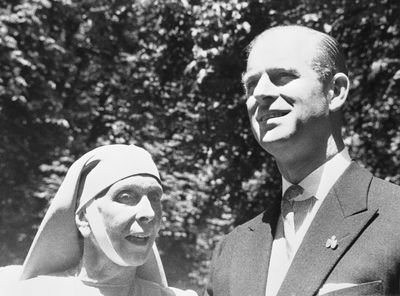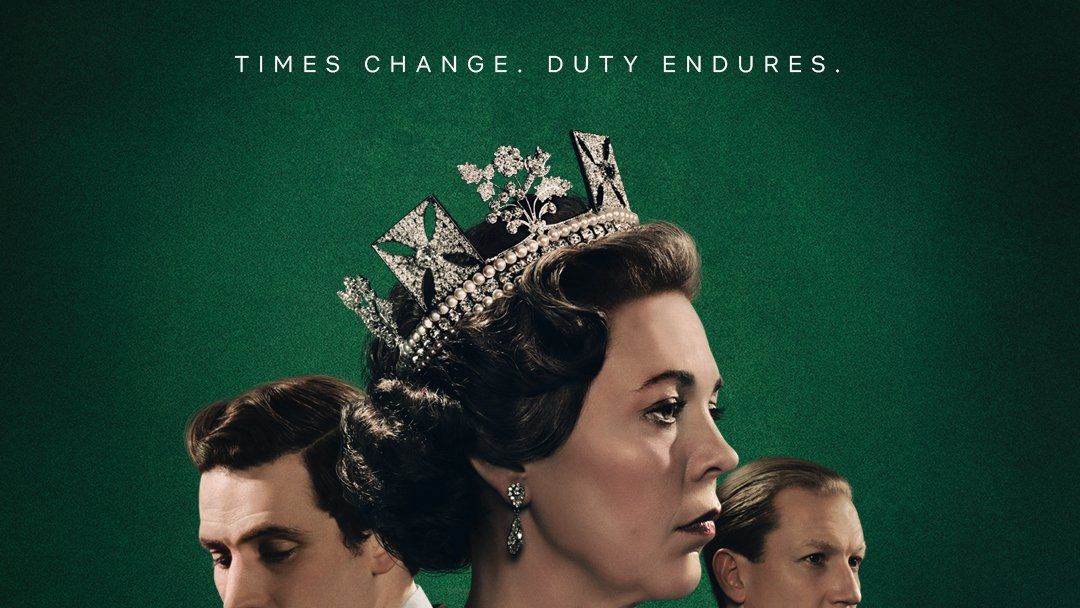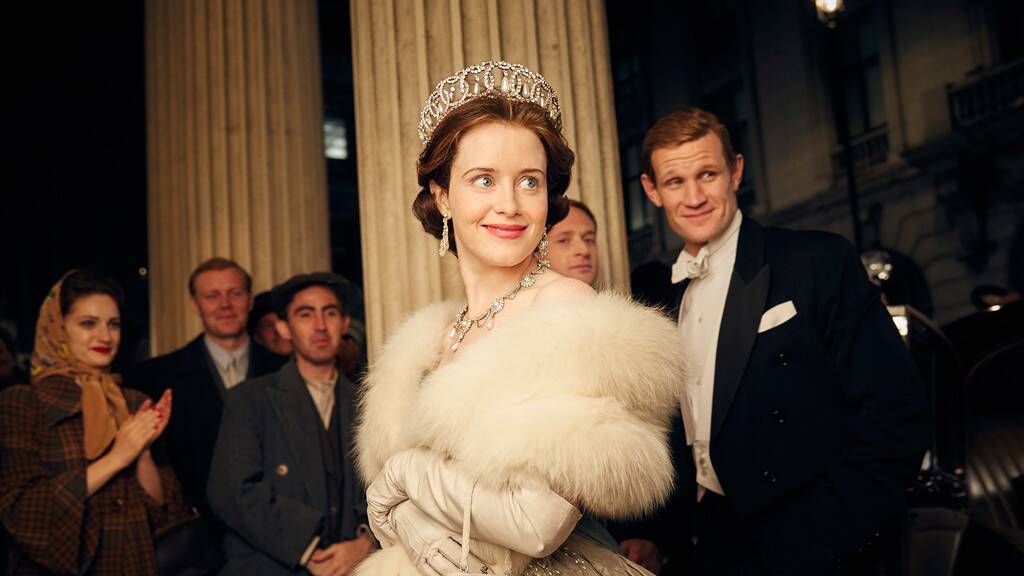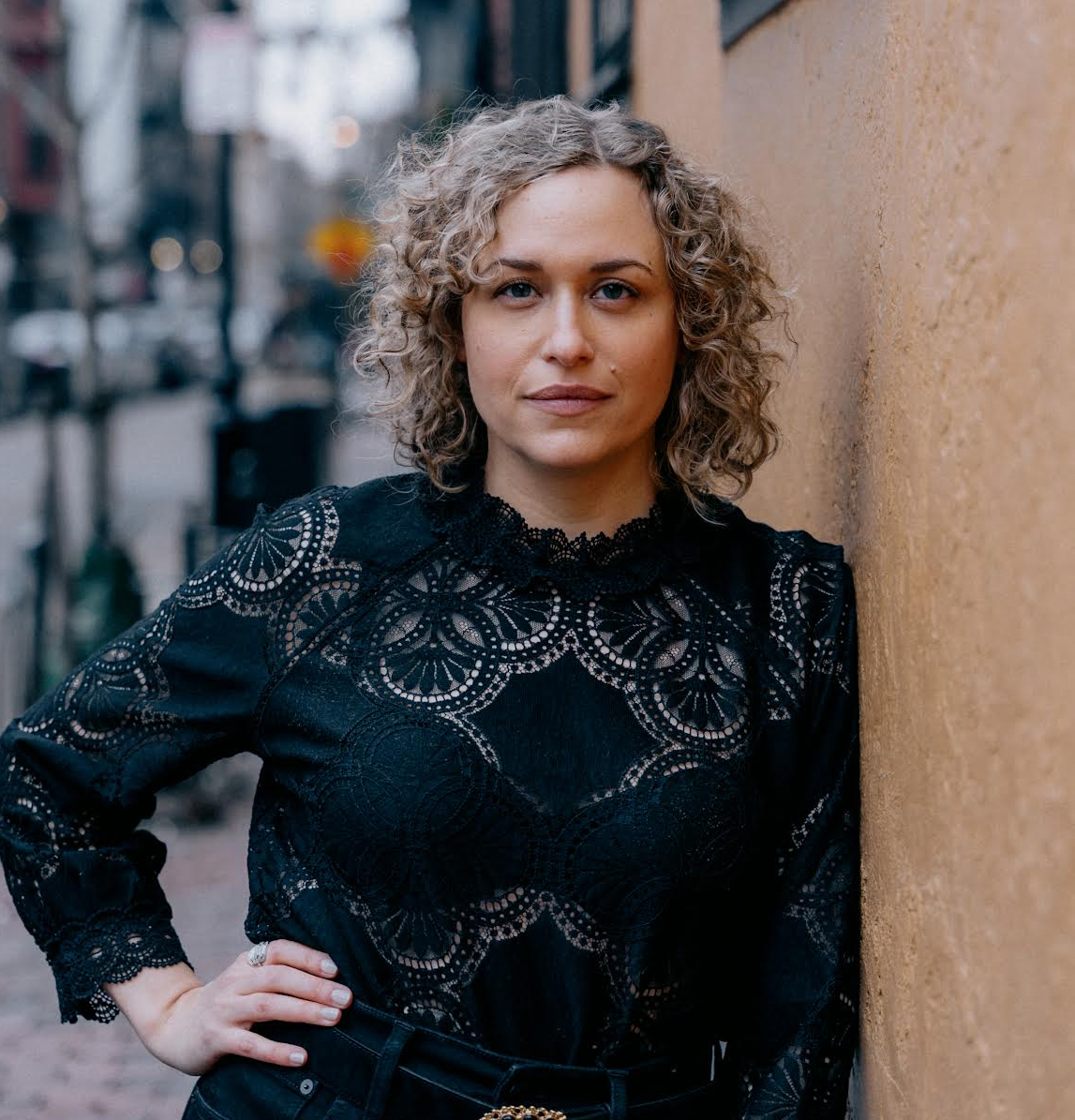Is Journalist John Armstrong Real, Per 'The Crown' Season 3?
It's a crucial storyline...that didn't happen.


Spoilers for season 3 of The Crown. One of the sweetest episodes of The Crown's season 3 is "Bubbikins," in which Prince Philip's estranged mother Princess Alice is brought to Buckingham Palace. She gives an interview to Irish reporter John Armstrong, who's written several articles disparaging the Royals' use of public money and aristocratic tendencies, and he has a change of heart and writes a profile that paints the family, particularly Alice, in a positive light. It's a sweet and vulnerable moment for the show...but what actually happened?
In the show, her role is vital.
Princess Alice is brought from Greece to England because of political unrest, and Philip's not too keen on the situation—the two haven't seen each other in years, and she's been absent most of his life in a sanitarium (she was diagnosed with schizophrenia) and, later, in a religious order. But then Guardian reporter Armstrong, who had previously written a derisive article about the royals after their official behind-the-scenes documentary aired, gets the chance to interview her.
He writes a glowing article about her, particularly in regard to the suffering and misunderstanding that plagued her her entire life, and Philip finally begins to thaw. He comes to visit her, and they sweetly reconcile shortly before the end of her life. (This is true–the two became close before her death in the two years following her move into Buckingham Palace.)
But most of it didn't happen.
Oops. Now, granted, The Crown doesn't profess to be a documentary—it's a dramatization of true events. But, usually, these events are pretty heavily drawn from real-life documents, photos, and biographies. Not so in this case, apparently.
There was no “John Armstrong” and even were he to have existed, he would not have written a damning front-page Guardian review of the documentary, not least because the documentary went out on a Saturday and was old news by Monday’s paper. The paper’s TV reviewer, Stanley Reynolds, merely noted that Her Majesty was “a delightful surprise.”
Get exclusive access to fashion and beauty trends, hot-off-the-press celebrity news, and more.
You will not, by now, be flabbergasted to hear that the dying Princess Alice did not give an interview to “John Armstrong” of The Guardian or, so far as I can see from Hugo Vickers’ biography of her, to anyone else.
However, what is true is that Philip and Alice did become close in her last years:

Which is a sweet little real-life anecdote to go with the mostly fictional story.
The Crown invents the character as a smart plot device.
Spoilers for season three. Some episodes in season three–"Aberfan," for example, and "Tywysog Cymru"–draw closely from their source material; "Bubbikins" is not one of them. What "Bubbikins" does do, however, is use the fictional character of Armstrong as a means of exposing the oft-terse relationship between the monarchy and the public, not to mention the problem of differing personalities and perspectives within a family that's forced to show only one public face to the world.
On top of that, the character of John Armstrong pops up as a way to humanize Prince Philip, who was not portrayed kindly in seasons one and two, and who finally becomes a (somewhat) relatable figure in season three. The return of his mother is used as a means of revealing what Philip went through at a boy, but it's clear the relationship has been put under such strain that it will take a lot for Philip to consider re-evaluating the relationship. (Don't forget that his character sincerely wants to leave his mother in Greece, even after the royals deemed it unsafe for her.)
Armstrong is used as a way for Princess Alice to both surprise and prove useful to Philip in a way that he would have deemed impossible–and it's this that prompts him to re-evaluate his feelings about her. Without Armstrong, the episode would not have a clear "enemy", as it were (the idea of "the public" disapproving of the royal family is a little tired): a conflict that is resolved in such a way to bring the characters closer.
For more stories like this, including celebrity news, beauty and fashion advice, savvy political commentary, and fascinating features, sign up for the Marie Claire newsletter.
RELATED STORIES



Katherine’s a contributing syndications editor at Marie Claire who covers fashion, culture, and lifestyle. In her role, she writes stories that are syndicated by MSN and other outlets. She’s been a full-time freelancer for over a decade and has had roles with Cosmopolitan (where she covered lifestyle, culture, and fashion SEO content) and Bustle (where she was their movies and culture writer). She has bylines in New York Times, Parents, InStyle, Refinery29, and elsewhere. Her work has also been syndicated by ELLE, Harper’s Bazaar, Seventeen, Good Housekeeping, and Women’s Health, among others. In addition to her stories reaching millions of readers, content she's written and edited has qualified for a Bell Ringer Award and received a Communicator Award.
Katherine has a BA in English and art history from the University of Notre Dame and an MA in art business from the Sotheby's Institute of Art (with a focus on marketing/communications). She covers a wide breadth of topics: she's written about how to find the very best petite jeans, how sustainable travel has found its footing on Instagram, and what it's like to be a professional advice-giver in the modern world. Her personal essays have run the gamut from learning to dress as a queer woman to navigating food allergies as a mom. She also has deep knowledge of SEO/EATT, affiliate revenue, commerce, and social media; she regularly edits the work of other writers. She speaks at writing-related events and podcasts about freelancing and journalism, mentors students and other new writers, and consults on coursework. Currently, Katherine lives in Boston with her husband and two kids, and you can follow her on Instagram. If you're wondering about her last name, it’s “I go to dinner,” not “Her huge ego,” but she responds to both.